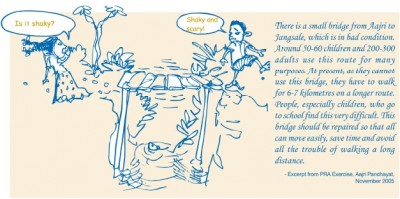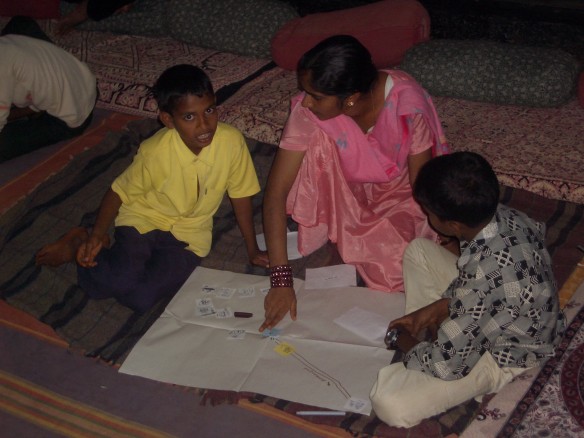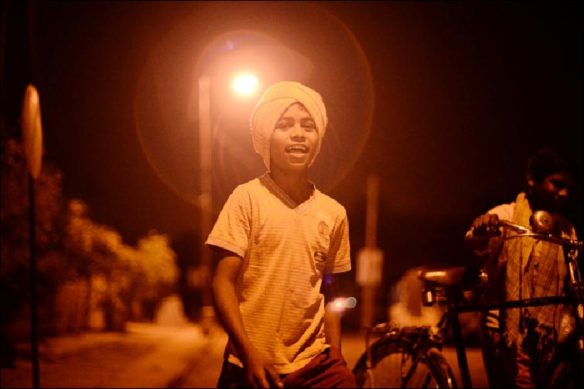Children in three continents solve their transport problems
In 2002, CWC was approached by the University of Durham in the UK to participate in a study researching transport and mobility problems faced by children in India, Ghana and South Africa. CWC agreed to participate on condition that children, not adults, lead the research. Durham’s researchers agreed, and it was decided that CWC would train the adult facilitators from all three countries, as well as the Indian children, in the relevant research skills.
The research took place over six months in 2004-5, with over 140 children using a variety of methods, including interviews, focus groups and simply counting traffic. The research was entirely designed by children, with tools such as surveys being subject to testing before use. Finally representatives of the researchers from all three countries gathered to compare and present their results at a workshop presided over by the Ghanaian minister for transport. The entire research process was designed, conducted and owned by children.
The children uncovered a wide range of problems, ranging from the apparently straightforward – broken bridges, potholes – to the highly complex. In one workshop, girl participants pointed out that they face unique problems getting buses thanks to harassment from male passangers and from conductors (see picture).
The children publicised the information with their local governments, using it as evidence to demand ration shops, schools and other facilities closer to their homes. However, as before with the household survey, the children also addressed problems themselves, using their findings to construct foot bridges, repair roads and set up traffic symbols.




